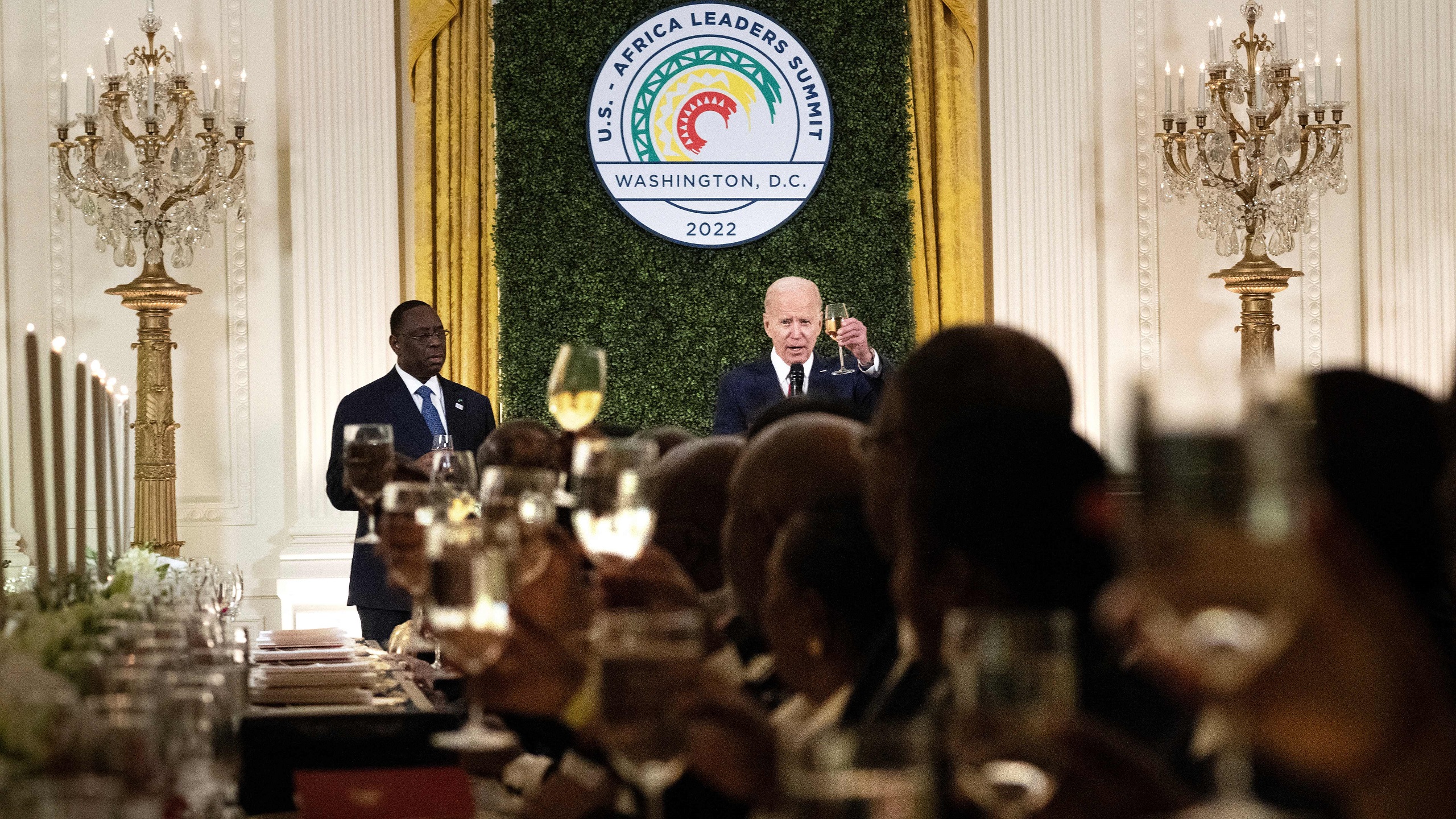Will Biden’s Diplomacy Succeed in Africa?
Asharq Al-Awsat, London, December 15
The US-Africa Leaders Summit, organized by the Biden Administration, recently concluded in Washington following three days of meetings. The United States says it wants to build a strong partnership with the African continent, and that the summit aims to show its “permanent commitment to Africa,” while African leaders spoke about their aspiration to build strong relations “away from the politics of dictates.” It is no secret that a big motivation behind the summit is America’s aim of curbing Chinese and Russian influence in Africa, which has grown significantly over the past two decades. The Biden Administration was keen to invite all African countries, including some countries that have reservations about its policies. Only Sudan, Mali, Guinea, and Burkina Faso were excluded from the event due to the military coups that took place there. Africa is important in the context of the US-Chinese competition for influence. It is the second largest continent after Asia, with a population of 1.4 billion people, most of whom are under the age of 25. US Vice President Kamala Harris said last week that Africa is the fastest-growing continent in the world, and its need for education, technology, and infrastructure is increasing. This population increase implies a purchasing power of $2.1 trillion for the global economy. The question is, will America succeed in curtailing China’s influence in Africa? It certainly won’t be easy. China has become the largest trading partner of the African continent over the last decade. According to official figures published by Beijing, the volume of its trade exchange with Africa increased by 35 percent in 2021 and amounted to $254 billion, in addition to the fact that Beijing is the largest lender to African governments. This is at a time when the volume of trade exchange between the United States and Africa is estimated at a mere $64 billion, ranking America fourth in the list of trading partners with Africa. While Western investments in the African continent seem slow and cautious and are often linked to political considerations, China is pumping huge sums of money into African countries in the form of loans to finance projects in the field of infrastructure – ranging from ports to roads and power stations. This makes it difficult for the United States and other Western countries to keep up with the pace. What the US administration is now hearing most from African leaders is that they want a strategic partnership with Washington that is based on a more equal balance of power, or as Senegalese President Macky Sall put it: “a partnership without anyone telling us what to do or not to do.” Many African governments may find China comfortable to do business with; Beijing doesn’t interfere in their political affairs or raise issues of human rights and democracy. However, China can be ruthless in other ways, such as taking over national resources when its debtors fail to make loan payments on time. Beijing has a track record of seizing its debtor’s resources or national assets such as ports and airports, in exchange for debt forgiveness. In many cases, loans were squandered due to waste, corruption, and lack of transparency and accountability, which puts these countries at the mercy of their creditors. In any case, China prioritizes its interests, which is obtaining natural resources and raw materials while expanding and diversifying its trade so that it is not heavily dependent on the West. Washington may not be able to keep up with Beijing in pumping huge sums of money into Africa without monitoring where it goes or demanding transparency, but it will apparently work on several fronts to woo African leaders. On the very first day of the summit held in Washington, the Biden Administration hastened to announce a series of decisions that confirm its seriousness in building a new partnership strategy, including the allocation of $55 billion for investment in Africa over the next three years in the areas of food security, education, health, environment, infrastructure, and renewable energy. To counter previous criticisms that many recommendations and promises are not being implemented, Washington appointed former Assistant Secretary of State Johnnie Carson, who previously served as ambassador to several African countries, to follow up on the implementation of these decisions and initiatives emanating from this summit. At the same time, President Biden signed a decision to establish a presidential advisory council to enhance the involvement of African expatriates in the United States and provide advice to the White House in a way that contributes to strengthening American-African relations and ties. This suggests that the US administration is counting on a major role for expatriates who come from Africa and who represent a large proportion of the African diaspora around the world. These steps are important, but are they sufficient to restore momentum to US-Africa relations? Much will depend on the implementation of these decisions, and on the steps that America will take to strengthen relations and develop trade cooperation and investments. The administration of former President Barack Obama had shown enthusiasm like that of the Biden Administration and organized the first US-Africa Leaders Summit in Washington in 2014, on the basis that these summits would continue periodically, which did not happen. Relations deteriorated during the presidency of Donald Trump, who didn’t express interest in the African continent. In any case, international relations are always subject to calculations of interests. This applies to China as it does to America. If African governments want to face less pressure from outside parties, they must improve their use of loans and aid and allocate them to real development projects. As for the policy of borrowing to bridge the budget deficit, financing projects that are not well studied, or squandering money in the absence of transparency and widespread corruption, this is the disastrous recipe that contributed to the impoverishment of Africa and its longstanding political instability. –Osman Mirghani (translated by Asaf Zilberfarb)

